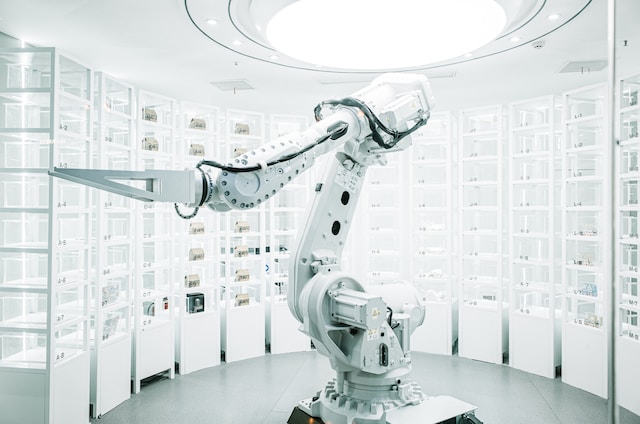The Symbiotic Relationship Between Quantum Computing and AI

Quantum computing and artificial intelligence (AI) are two cutting-edge technologies that have been making waves in the world of science and technology. In recent years, the intersection of quantum computing and AI has opened up new possibilities and sparked excitement in the scientific community. Let’s delve into the fundamentals of these technologies and explore how they complement each other.
Understanding Quantum Computing
Quantum computing operates on the principles of quantum mechanics, which is the study of tiny particles like electrons and photons. Unlike classical computers that use bits, quantum computers use qubits, allowing them to process information in ways that classical computers cannot. This enables quantum computers to perform complex calculations at unprecedented speeds.
AI: A Brief Overview:
AI, on the other hand, refers to the development of computer systems capable of performing tasks that typically require human intelligence. This includes learning, problem-solving, and decision-making. Machine learning, a subset of AI, involves training algorithms to recognize patterns and make predictions.
The Synergy Begins
The synergy between quantum computing and AI lies in their ability to enhance each other’s capabilities. Quantum computers have the potential to process vast amounts of data quickly, optimizing the training process for AI models. This collaboration promises to revolutionize various industries by solving complex problems that were previously insurmountable.
1. Speeding Up Machine Learning:
Quantum computers excel at handling large datasets, a crucial aspect of machine learning. Traditional computers may take a long time to train AI models, but with quantum computing, this process can be significantly accelerated. This speed boost can lead to advancements in various AI applications, from image recognition to natural language processing.
2. Enhanced Optimization:
Quantum computing can also improve optimization problems, a common challenge in AI. These problems involve finding the best solution among many possibilities. Quantum algorithms can explore multiple solutions simultaneously, making it possible to find optimal solutions more efficiently. This has implications for tasks like resource allocation and logistics planning.
3. Breaking Encryption:
While quantum computing presents opportunities, it also raises concerns, especially regarding encryption. Quantum computers have the potential to break widely used encryption methods. This has prompted researchers to develop quantum-resistant encryption algorithms to safeguard sensitive information in the era of quantum computing.
4. Quantum Machine Learning
The marriage of quantum computing and AI has given rise to a new field known as quantum machine learning. This involves using quantum algorithms to enhance machine learning processes. Quantum machine learning has the potential to outperform classical machine learning in certain tasks, paving the way for more sophisticated AI applications.
Challenges and Considerations
Despite the promises, there are challenges on the road to integrating quantum computing with AI. Building and maintaining stable quantum computers is no easy feat, and researchers are actively addressing issues such as error correction and scalability. Additionally, the practical implementation of quantum machine learning algorithms requires careful consideration and testing.
The Road Ahead
As quantum computing technology continues to advance, the possibilities for AI seem boundless. The symbiotic relationship between quantum computing and AI holds the key to solving complex problems and pushing the boundaries of what is currently achievable. Collaborative efforts between physicists and computer scientists are essential to unlocking the full potential of this synergy.
Conclusion
In conclusion, the convergence of quantum computing and AI marks a pivotal moment in the world of technology. The combination of quantum processing power and AI’s problem-solving capabilities opens up new horizons for innovation. While challenges remain, the progress made so far indicates a bright future for the collaboration between quantum computing and AI. As these technologies evolve, we can expect groundbreaking developments that will shape the way we approach and solve problems in the years to come.




